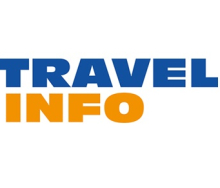Italy has finally loosened the restrictions on “third countries” (non-EU countries) entering the country – from March 1, it will allow EU and non-EU arrivals under the same rules. This means travellers may enter for reasons of VFR or pure tourism, and no pre-travel testing is required.
Italy was one of the first European countries in which Covid cases were found early in 2020, and it suffered greatly under the first wave of Covid. Efforts to avoid a repeat of the events and casualties of the first wave of Covid, have meant that entry into Italy has been very difficult, particularly for residents of “Red list” countries like South Africa, who have been kept at arm’s length for the better part of two years. A compelling business or humanitarian reason has been necessary for South Africans to travel to Italy since it allowed any visitors at all.
Italian Health Minister Roberto Speranza announced on his official Facebook page: "Starting from March, for arrivals from all non-European countries, the same rules already established for European countries will be in force.” The information was repeated in his official Twitter account on February 22.
He said too, that a vaccination certificate, a recovery certificate or a negative test result would suffice for entry into the country from March 1. Italian media report that the Minister has already signed the documentation into law.
Meanwhile, those entering on a negative PCR test certificate should beware - Italy currently has a two-tiered Health Pass system. The Health Pass is gained either with proof of vaccination or of recovery, but not with a negative test result. The Health Pass is required in order to gain access to practically everything, from hotels and restaurants to public transport. This system is not expected to change until March 31 at the earliest.
Italy’s decision to ease travel rules for non-EU countries seems to align with a recommendation issued on February 22 by the Council of the EU, that travellers from non-EU countries be allowed entry to all EU countries (the removal of the non-essential travel ban) and that proof of vaccination (with a vaccine approved by the European Medicines Agency or the World Health Organization), be acceptable, and this provided that the last vaccine dose has been received within the last 270 days (excluding third jabs or boosters, upon which there is no expiry time limit). The Council also recommended that a certificate of recovery be accepted.















